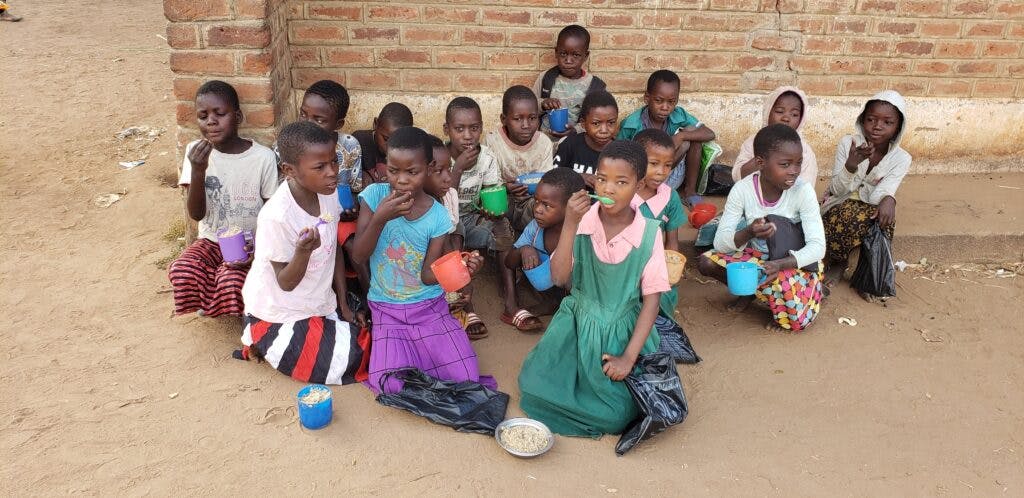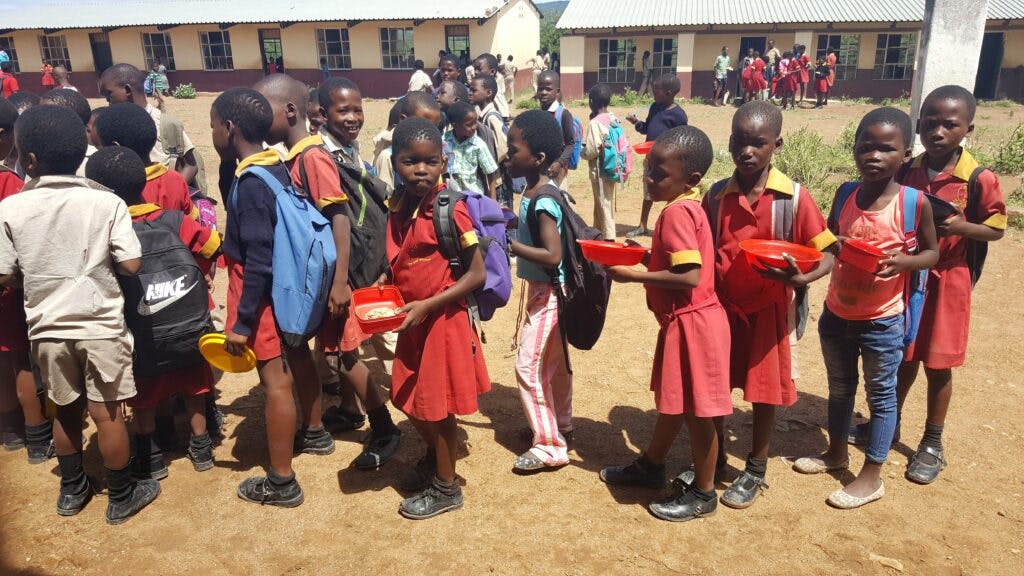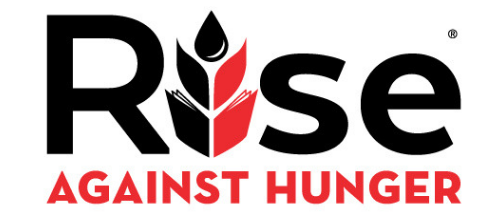The Role of Education in Food Security

Today marks the International Day of Education, which brings attention to the role education plays in building a more sustainable and equitable future. The United Nations recognized when it developed the Sustainable Development Goals that education would be the foundation on which the success of all goals is built, especially food security.
An equitable and quality education affords children and young adults with the opportunity to build a promising future for themselves, a potent tool to help them escape the cycle of poverty. While both the Declaration on Human Rights and the Conventions on the Rights of the Child call for access to education, that right is not being upheld or protected. At least 258 million children are not able to enroll in school, 617 million cannot read or do math, and less than 40% of girls in Sub-Saharan Africa do not finish secondary school.

At Rise Against Hunger, we are dedicated to increasing access to education through school feeding programs. These programs have demonstrated the potential to improve literacy outcomes by reducing short-term hunger, improving attentiveness and increasing attendance. In low-income countries, especially those facing dire food insecurity, the value of sending a child to school is not always apparent, especially when today’s needs, such as finding food to put on the table for dinner, take precedent. What value is there in the future when it will not alleviate the present? But the knowledge that their children will receive a hot meal at school is a powerful incentive for parents to send their children to school. Rise Against Hunger is projected to have supported over 300 schools around the world in 2021 by providing nutritious volunteer-packaged meals or by purchasing food locally through local and regional procurement.

In 2017, Rise Against Hunger partnered with the Adventist Development and Relief Agency to implement the Southern Africa School Feeding Initiative in five countries. Planting Seeds for Strong Communities, one of our Empowering Communities sustainable agriculture projects, is a continuation and expansion of that initial project in rural Zimbabwe. The schools we support are transitioning to a home-grown school feeding, meaning they will be self-supporting by growing their food on-site and partnering with local smallholder farmers.
Prior to the start of the project, absenteeism (poor attendance) was high, and school staff hoped that a school feeding program would change the situation. In the past four years of the project, both enrollment and attendance have increased drastically.
The headmaster at Nenyunka School, Taurai Chikanya, has witnessed the impact firsthand. In 2021, enrollment increased by over 66%. Students who had once dropped out of school are now returning to complete their education. The community is more involved in the program knowing their children will receive a meal, and now the school has turned into a learning hub for adults. Agriculture training, originally meant for the local smallholder farmers, is provided to parents who apply their new skills and knowledge to their farms at home.

Taurai now presides over a “top school,” and he hopes that, “the school will be able to fund school fees for less privileged kids in our community, so that they have a chance to attend school. The help from [the Rise Against Hunger] project has resulted in the school being able to provide a conducive learning environment.”

